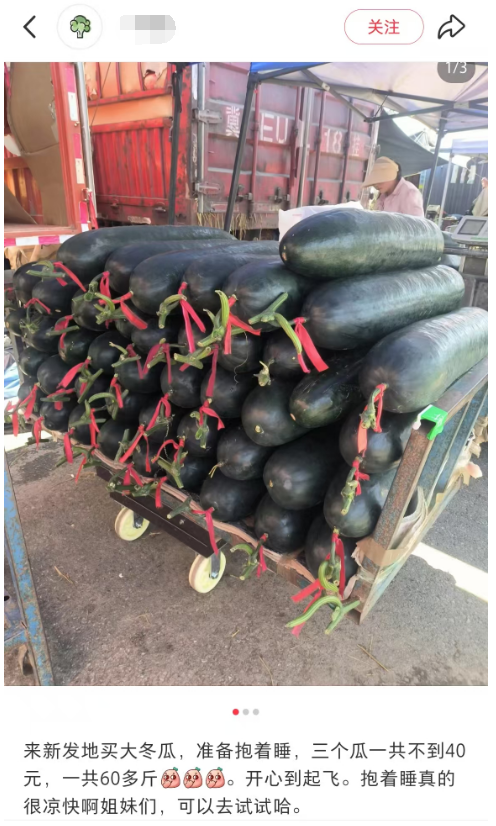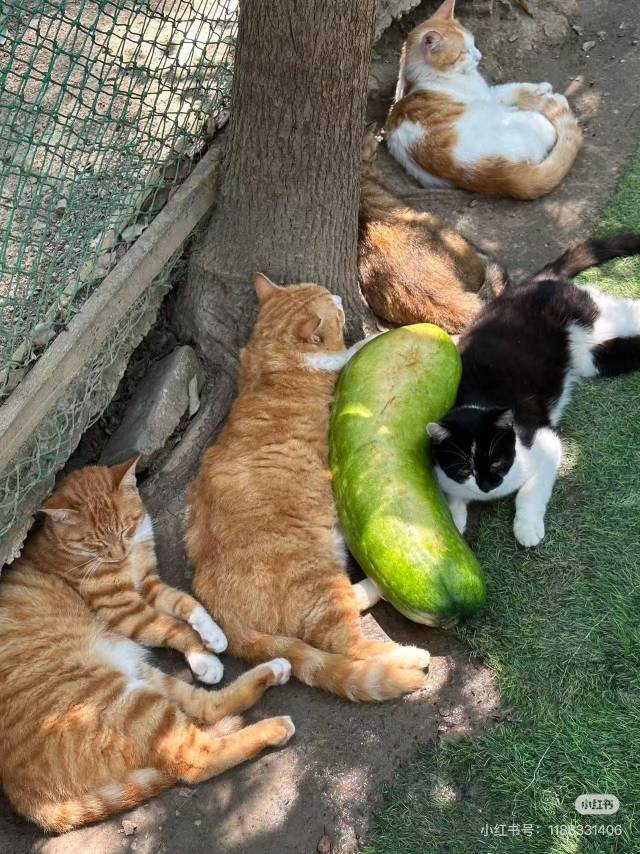A 1,000-year-old cooling technique—sleeping with winter melons—has reemerged across China as sweltering temperatures rise. The method, documented in the Song dynasty poem Summer Night Melon Slumber, exploits the vegetable's 95% water content to absorb body heat, functioning as a natural thermal buffer.



Since early July, record-breaking temperatures have gripped Shandong, Jiangsu, and Anhui provinces. Guangdong became China's first region to hit 160 gigawatts of electricity demand as residents cranked up air conditioning, prompting searches for low-cost alternatives. Winter melons (also called wax gourds), priced at under $1 per kilogram and lasting weeks at room temperature, now feature in social media videos showing infants clutching them like organic cooling pads.
In Hong Kong, resident Zhang transported a 14kg, 70cm-long melon from Shenzhen for his infant daughter. "She grabs it with her hands and feet; it's become her daily cooling companion," his wife said.

Laboratory tests confirm skin contact with a room-temperature winter melon (20-25°C) can lower surface body heat by 2-3°C within an hour through conductive cooling. Traditional Chinese medicine attributes additional benefits to the rind, which has historically been prescribed as a heat-clearing agent in the Compendium of Materia Medica: Bencao Gangmu (本草纲目).
Dr. Yang Zufu, director of Traditional Chinese Rehabilitation Medicine at the China Rehabilitation Research Center, advises the method primarily for "those unable to use AC or fans comfortably—elderly, pregnant women, or infants." However, he warns that those with chronic cold sensitivity or digestive weakness may experience aggravated abdominal pain or diarrhea. Users must scrub off microscopic spines on the rind to prevent skin irritation and avoid direct abdominal contact during sleep. Gourds can be reused after chilling in cold water. For vulnerable groups, indirect contact via cloth wrapping is recommended.
More heat mitigation suggestions
Clothing: Loose, light-colored linen or silk to facilitate sweat evaporation.
Diet: Bitter melon, lemon, and plum to replenish electrolytes; limit ice beverages to prevent digestive stress.
Activity: Tai Chi or walking before 10:00 or after 16:00 to avoid peak UV exposure.
Author | Feng Huiting
Editor | Wei Shen, James, Shen He






